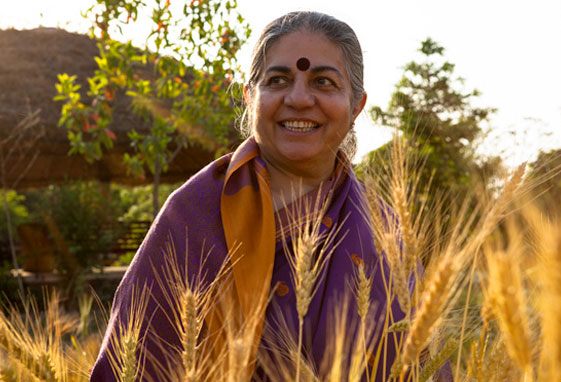Seed StoriesCall to Action: Local Seed!
by Mary Jane Edleson

We live in a time of uncertainty, from climate change to polarized viewpoints and values. At the same time a growing body of people are working to define new models to protect our genetic commons in the public domain. The organic food industry is also becoming more aware of seed as critical to food production and the quality and integrity of their products, as well as the challenges and needs before us.
BENIH BALI remains optimistic even in the face of startling obstacles. Why? We believe in the human capacity to reinvent systems, not forgetting our core values of honoring the earth and watching out for each other. We also believe in the power of organic and ecological agriculture to help farmers succeed economically and support a healthy environment. Climate change, food security, and agricultural resilience are key issues of concern around the world. They are also issues best addressed by building models of decentralized ownership of seed, promoting organic agriculture, and emphasizing diverse, local and regional food production. Public awareness of the negative impacts of consolidated ownership of our genetic resources is increasing along with growing concern of the impact of genetically engineered crops.
In the USA alone, the top three biotechnology and chemical firms collectively control more than half of the seed market, up 22 percent from 1996.
The vision of BENIH BALI over the next 10 years is to build healthy, local seed systems through diverse partnerships with farmers, universities, food companies, non-profits, and chefs and all of us that want to continue having “good, clean and fair” food to eat. BENIH BALI will be a platform for sharing local seed knowledge, including helping to preserve, better adapt and innovate in our local seed reserves.
We will give our best support to advance more organic agriculture in Bali, including encouraging better plant breeding programs. This will require more recognition of the importance of organic seed by farmers and the organic food industry, and the general public.
It will also require building research and education programs that can improve the skills of organic seed producers for higher standards for organic seed quality.
Leave a Reply



